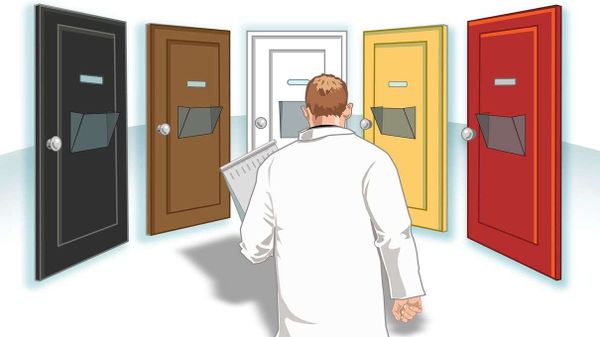
We've all been left twiddling our thumbs in the doctor's office long after appointment time has come and gone. Some wait it out to varying degrees of annoyance, while others leave in an angry huff. Often, the same docs either post a sign or require patients to initial a form stating that the appointment can be canceled, or a fee applied to the account if the patient is late. So why do doctors get a "free" pass, while patients pay a penalty? Are they implying that their time is more valuable than that of their patients?
Not really. Many doctors say the underlying cause of lateness is the patients who came before you. First, there are patients who arrive late, but still within the acceptable 15-minute grace period. The doctor's office has to be accommodating to a reasonable extent due to extenuating circumstances like traffic, especially if the patient is actively sick or exhibiting symptoms. Also, plenty of patients blow off the request to arrive 15 minutes early to update insurance and fill out paperwork. So, even if they arrive technically on time, taking care of these tedious, but necessary, steps will push the entire schedule back.
Advertisement
Then, there's the actual seeing of the patients. Although it varies by practice, many general practitioners schedule patients in increments of 15 or 20 minutes. For a basic and easy to diagnose complaint, that's totally doable. However, a patient presenting with a complicated history, multiple issues and new symptoms can quickly cause a backlog, particularly if they didn't disclose when scheduling the appointment that they have numerous concerns, or if an unexpected issue pops up during the visit.
"Because of the nature of health, there is no ability to say – 'come back tomorrow so that I can initiate the treatment for the heart murmur I just found,'" emails Elizabeth Woodcock, an Atlanta-based expert in medical practice operations efficiency, who regularly advises doctors on ways to improve patient flow and scheduling optimization, adding, "Delaying care is very different [from] delaying a mortgage closing, sweater purchase, meal reservation, etc., so this means that a single patient can result in a delay for everyone scheduled that day."
Most practices take steps to minimize wait times, but there's currently no magic equation. "We try to make a schedule that will accommodate complicated or demanding patients, but what if half the patients that day take more time than expected?" says Dr. Barbara Bergin, an orthopedic surgeon in Austin, Texas. "If I really want to be certain that no one waits, then maybe I only see five patients in a morning. Then I can't afford to keep the lights on."
Advertisement

